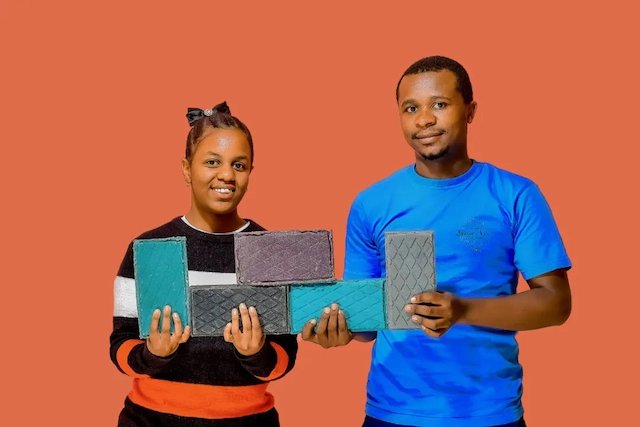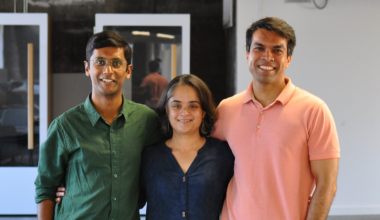Over the past few years, African entrepreneurs have focused on developing solutions to combat climate change, driven by the continent’s unique environmental challenges. Their efforts are now producing results.
Since the start of the year, Africa’s ClimateTech sector has secured $325 million, or 45% of the total funds raised by all African startups to date, according to The Big Deal.
Neil Walmsley, head of international markets at Climate-KIC, the EU’s top innovation agency, calls Africa one of the world’s most promising regions for ClimateTech.
“The growth in sectors like energy efficiency and waste management has been remarkable,” said Walmsley, who oversees adaptation programs in Africa. He highlights the rise of climate innovation hubs in Lagos, Nigeria, and Nairobi, Kenya.
African startups often adapt technologies developed elsewhere, creating more affordable versions tailored to the local context.
“They frequently outcompete more expensive imported solutions, leveraging cost-effective technologies like open-source data and mobile tech,” Walmsley said.
Who’s leading Africa’s ClimateTech revolution?
In August, the Egyptian startup NoorNation received an undisclosed investment from KBW Ventures, the VC firm founded by Saudi Prince Khaled bin Alwaleed. NoorNation provides decentralized solar energy and water solutions tailored for farming and underserved communities. The funding will help the startup scale its operations.
The Catalyst Fund, managed by BFA Global, recently invested $1.8 million in early-stage African companies that support farmers, healthcare providers, and small businesses in adapting to climate change.
Among them is Tolbi, a Senegalese agtech startup using satellite imagery and AI to advance climate-smart agriculture, helping farmers optimize resources and address climate impacts.
Recycling waste produced in large volumes across African cities is another growing sector. Local startups are turning waste into products like furniture and building materials.
Walmsley cites Green Makers Solution in Tanzania, which recycles plastic into floor paving, as a successful example of the circular economy at work.

Nigeria’s Scrapays fosters the creation of mini waste businesses. This approach not only tackles waste reduction but also encourages entrepreneurial growth within local communities.
The startup is effectively using hyperlocal agents equipped with smartphone apps and IoT-enabled smart scales to create a more efficient recycling value chain. They operate independently, while Scrapays provides the technology and infrastructure.
According to Scrapays co-founder Tope Suleiman, this model is “empowering micro-enterprises and agents to collect, sort, and sell recyclables.”
U.S. funding vs global slowdown
While African ClimateTech startups have continued to attract U.S. investors, 2024 saw significant challenges for fundraising.
Maxime Bayen, Catalyst Fund’s Operating Partner, attributes Africa’s current fundraising challenges to a “global slowdown in VC funding,” noting that this trend isn’t unique to the continent.
“We just passed about $1.3 billion,” he said, acknowledging that while the figure is notable, it falls short compared to previous years.
Over the last 18 months, Catalyst Fund, which is dedicated to building a climate-resilient future in Africa, has made 22 investments across 8 countries on the continent.
Commenting on the role of U.S. investors, Bayen said that “about a third of all VCs operating in Africa are based in the U.S.” However, he added that the slowdown has likely led some U.S. investors to shift their focus and resources to domestic markets.
Nevertheless, Bayen remains optimistic about U.S. involvement, emphasizing that “American VCs have been incredibly helpful, particularly in later-stage funding, such as Series B and Series C rounds.”
Cristian Agudelo, an ecosystem specialist for Africa at the United Nations Development Programme (UNDP), is optimistic about investment in African ClimateTech.
“Africa is uniquely positioned to play a key role in addressing the global climate challenge, with tech startups leading the way,” he said.
U.S. investors, particularly large corporations, increasingly see Africa as a hub for innovative, sustainable business models.
“These investors are prioritizing projects that align with SDGs and climate goals from the outset,” Agudelo said. “This shift toward greener investments is helping ClimateTech startups gain the visibility and support they need.”
The potential for great returns and significant job creation makes African ClimateTech one of the most promising areas for investment.
A major challenge, however, is the lack of early-stage seed capital and investors experienced with Pan-African startups. VCs want to see proof of scalability across regions.
Walmsley of Climate KIC suggests that long-term success will depend on a more aggressive backing from international institutions.
If African startups can crack the code on scalability and attract the right capital, the continent could emerge as the testing ground for the next wave of climate innovation.








